Vegan For Beginners: A Compact Guide To Health, Diet & Lifestyle
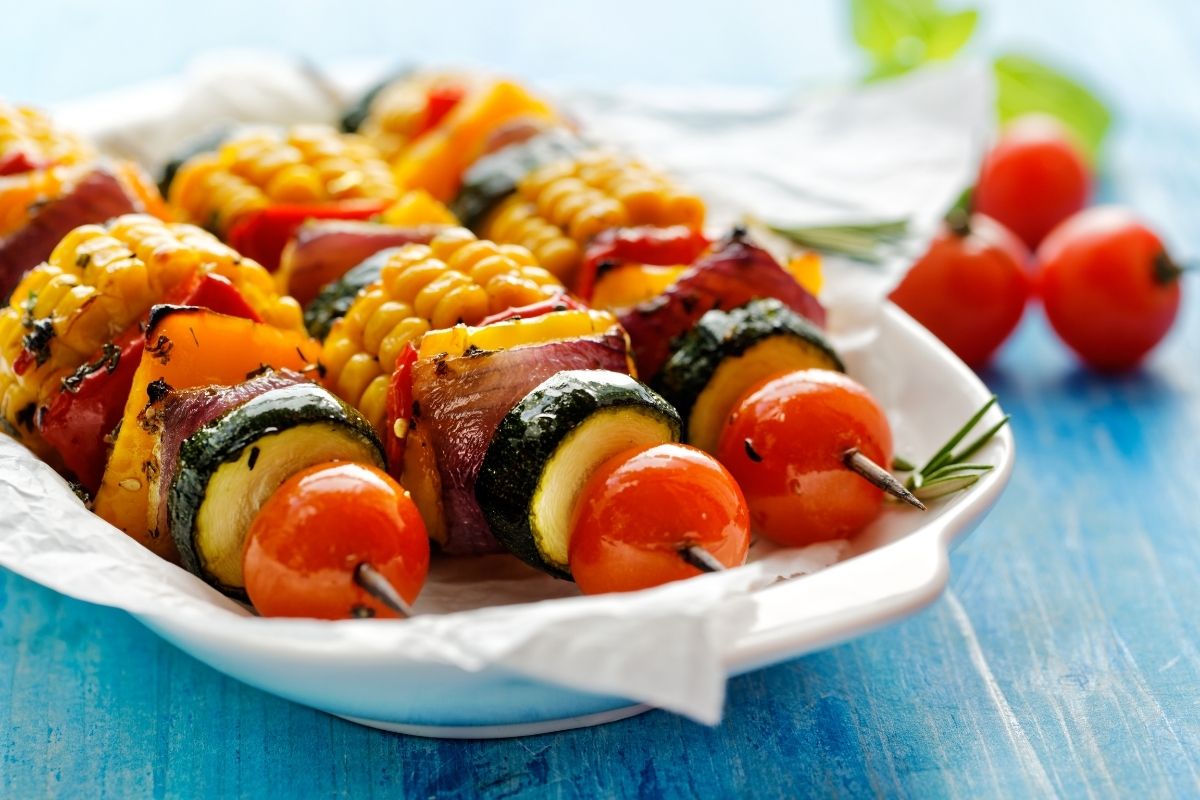
Vegan for Health: Your Helpful Guide to the Pros and Cons
Veganism is a controversial diet/lifestyle. The very word can spark a barrage of questions and an intense debate. Meat lovers often roll their eyes at claims that a vegan diet is healthy; science, though, begs to differ. If you're considering going vegan for your health, put down that avocado and read on for the pros and cons of a vegan diet.
What is Veganism and What Can't Vegans Eat?
Veganism is not just a trendy buzzword or a gimmick to help Gen Z-ers grow their Instagram followings. In fact, the term "vegan" dates back to 1944 when members of the Leicester Vegetarian Society formed a breakaway group that took vegetarian diets to the next level. They shunned all animal foods and products, including:
- Meat like beef, pork, lamb, chicken, duck and turkey
- Fish and shellfish
- Eggs and foods containing eggs, like mayonnaise
- Dairy products like cheese, butter, milk, cream and ice cream
- Honey and foods containing honey
- Gelatine (derived from animal collagen)
- Cochineal (food colouring made from crushed beetles)
- Casein and whey (derived from milk)
- Isinglass (from the swim bladders of fish; used to refine wine and beer)
So What Do Vegans Actually Eat??
Whatever they like! A balanced, healthy eating vegan diet is based on vegetables, fruits, grains, pulses, nuts and seeds. It may also include faux meats, vegan cheese, tofu, tempeh and seitan.
A common question is, how do vegans get protein? Ask a vegan this, and if you're lucky, you won't get the death stare. Instead, he/she will smile sweetly and rhyme off a list of plant-based, vegan protein sources starting with beans, peas, lentils, chickpeas, quinoa, oats, tofu, seitan, tempeh, peanut butter, broccoli, sweet potatoes...
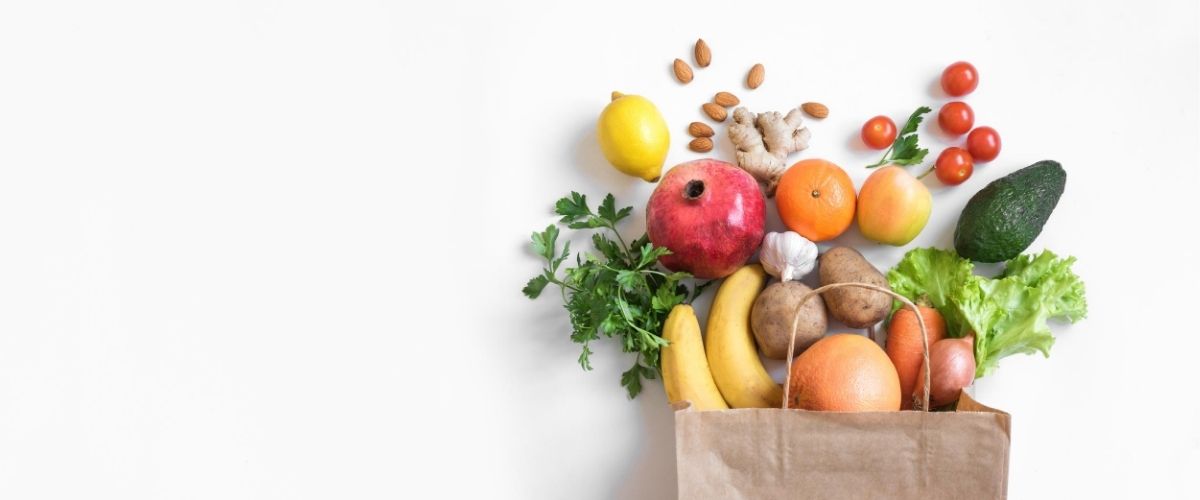
Sheesh, OK! So What are the Health Pros of a Vegan Diet?
The uninitiated often consider a vegan diet restrictive and unhealthy. Vegans themselves have long been portrayed as tie-dye-wearing oddballs who live on mung beans and fresh air.
Today though, the stereotypes have been quashed thanks to a new wave of vegan influencers and celebrities. Even better, the health benefits of veganism are backed by science *pushes up glasses* take a look at the pros of going vegan:
-
Reduced risk of developing chronic diseases including heart disease, type 2 diabetes, colorectal and prostate cancer and Alzheimer's.
-
Longer lifespan; since vegans typically have fewer strokes, lower blood pressure, lower cholesterol levels and lower BMIs than omnivores -source
-
Easier to maintain a healthy weight as a balanced vegan diet is lower in calories and fat than other diets.
-
Good for the planet because studies show that cutting meat and dairy from your diet can reduce your carbon footprint by two-thirds. More than half of the world's greenhouse gas emissions come from meat and dairy production.
-
It's easy in 2020! In our modern, "woke" society, it's easy to find vegan food and vegan alternatives to animal products. Pea-protein sausages, egg substitutes, cashew cheeses, vegan chocolate - heck, you can even buy faux bacon (facon)! Many cafés, pubs, restaurants and takeaways have embraced veganism, so eating out as a vegan is no longer an "I'll have a plate of leafy greens, please" type struggle.
What are the Cons of a Vegan Diet?
Admittedly, going vegan is not without its challenges...
-
There's a flip side to Pro #5 because yes - eateries have jumped on the vegan bandwagon, but no - not all their offerings are healthy, nutritious and balanced. Vegan junk food exists, but it shouldn't form the basis of your diet.
-
You may experience some - ahem - digestive discomfort as your body gets used to plant-based protein. Top Tip: don't go vegan during a national toilet paper shortage.
-
You may need to take supplements to avoid nutritional deficiencies. Vitamin B12 and omega-3 fatty acids are common stumbling blocks for many new vegans. Omnivores will tell you these nutrients can only be found in animal products, but fortified plant milks, tofu, nutritional yeast and flax seeds are all vegan sources.
Still Unsure About Going Vegan for Health Reasons?
If you're considering going vegan, research is essential; balance is key. Veganism may not be for everybody, but if you give it a go, you'll be doing right by your health and the planet!
Read on to explore how easy (or difficult) it is to go vegan.
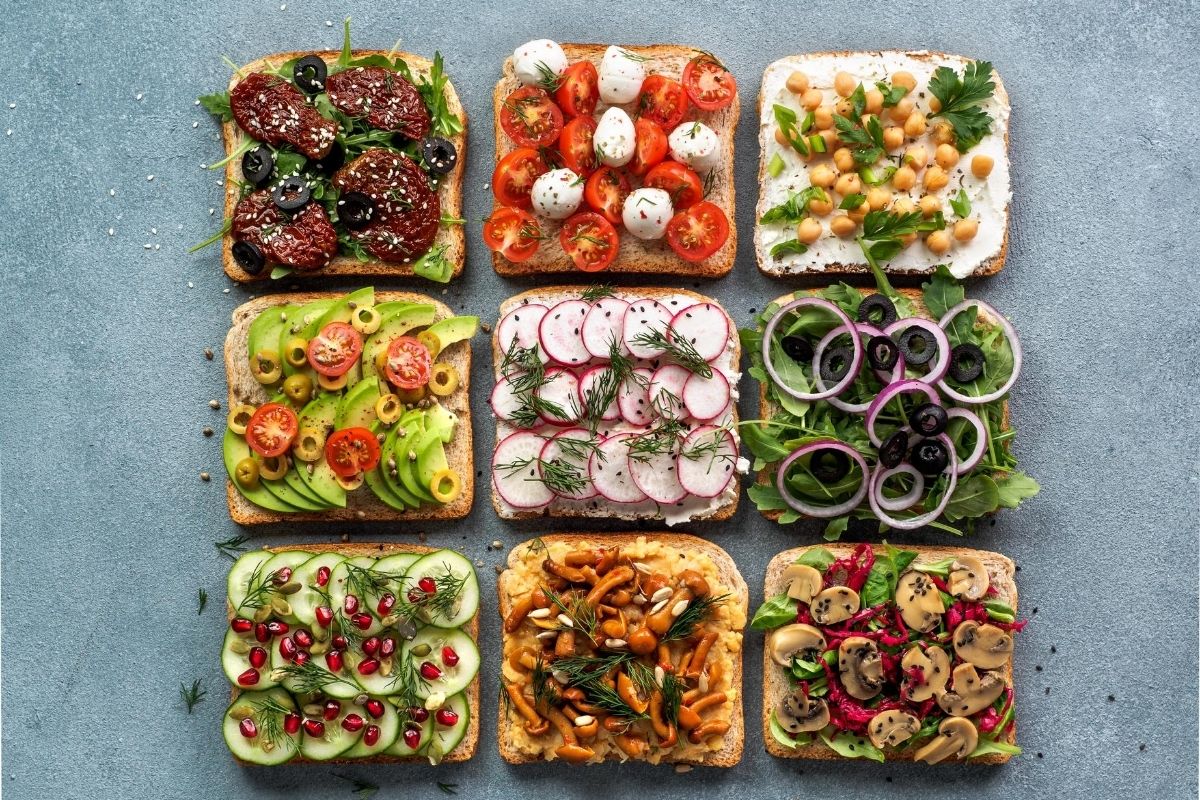
How to Make a Successful Switch to a Vegan Diet
In 2020, it seems like every man and his dog is going vegan (looking at you, Lewis Hamilton and pooch). Maybe you're thinking of going vegan yourself, but feel intimidated because of confusion, mockery and oh my gosh bacon. But with a little research and planning, transitioning is easy. Here's how to successfully make the switch to a vegan diet and join the healthy vegans clan.
Consider Why You Want to Go Vegan
Do you want to improve your health or lose weight? Is meat a moral issue for you? Do you want to help the environment? Is it a combination of things?
Having a clear motivator will help you set your goal and achieve it. When you feel inspired, you'll find that going vegan is a piece of (avocado-chocolate-mousse-topped) cake.
Once you've set your goal, reach for it at your pace. You could commit to doing Veganuary or Meat-Free Mondays. You could switch one product at a time, perhaps trading cow's milk for soya or beef mince for plant-based.
Be Prepared to Do Your Research
Before switching to a vegan diet, read up on the nutrients you need to stay healthy and learn which plant foods provide them. To boost your vegan know-how, find support and discover new recipes, you could...
- Join vegan groups on social media
- Sign up for vegan recipes to your inbox
- Buy a vegan cookbook for mealtime inspiration.
- Download apps that offer guides to veganism or eating out as a vegan
- Attend a vegan food event with stalls providing information and food (hello, tasty samples!)
Matt Turner from The Vegan Society had this to say about vegan recipes:
“In terms of cooking, Google any dish you like with the word vegan in front of it and you’ll find some of the most amazing, mouth-watering recipes. There are vegan alternatives to pretty much everything now, allowing you to ‘veganise’ your old favourite dishes with ease. Experimenting with vegan food is now easier than ever and there are a whole host of recipes and ideas at your fingertips.”
Base your diet on a variety of fruits, vegetables, pulses and grains, to ensure your body gets the full range of vitamins and minerals. There are plenty of vegan foods high in protein and essential amino acids. Be aware that vegan junk food does exist (hey, it's not all about salad), but it should be reserved as a treat.
Reward Your Successes But Don't Fear Setbacks.
Pat yourself on the back for all the fantastic progress you've made, but don't beat yourself up if you rage-eat a non-vegan chocolate bar or give into bacon temptation. Going vegan is a long-term journey, and you're bound to have some #StruggleIsReal kind of moments.
One thing that could potentially sabotage your good intentions is The Gut Factor. A vegan diet - and all the increased fibre and plant-based protein that come with it - can disrupt your digestive system. You may experience bloating, excess wind, constipation and/or diarrhoea for the first weeks or even months.
Fear not, though, as this unpleasantness usually subsides when your gut gets used to the new stuff. Stock up on toilet roll, don't give up, and of course, if symptoms persist, see your doctor and reassess your diet.
Break Out the Tupperware
Food prep and batch cooking are busy vegan's BFFs. They eliminate the hassle of cooking from scratch every night, save you money and keep your vegan goals on track. You'll always have a nutritious, plant-based meal stashed in the freezer - great when you're busy, tired, hangry or tempted to just give in to that meatball sub already.
Another tip for staying motivated is to try new foods! Being adventurous will give you the skills and confidence to stick with your new plant-based diet.
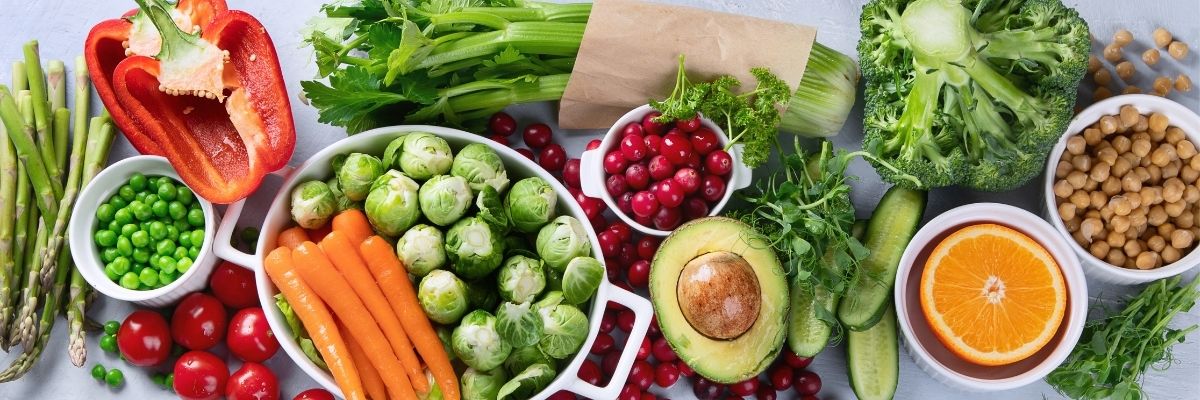
Is Being Vegan Expensive?
Forget Everything You Heard About Veganism Being Expensive. Frozen fruit and vegetables, dried pulses and grains can all be bought in bulk relatively cheaply. And since the major supermarkets have jumped on the vegan trend, it's even easier to get hold of such scrumptious, filling stuff.
Don't Give Up on Your Goal!
You never forget the moment you come out of the vegan closet. Reactions from even family and friends range from horror, sniggering, lectures about protein *rolls eyes* and questions about just what the heck are you thinking?? People may try to dissuade you but - hello! It's your life and who knows, they may even come round to the idea of facon (fake bacon).
Heed these wise words from Matt Turner at The Vegan Society:
"Some people go vegan overnight; for others it’s a longer journey comprising a number of steps. If you slip up, don’t worry, just keep going! There’s support at hand at every corner, not least from The Vegan Society. Download our free app VeGuide for daily informational videos, motivational quotes, quizzes, recipes and discounts, all of which aim to help you ease into vegan living.”
Going vegan is a joy on so many levels. It makes you feel good not just because of the great-tasting, healthy food you're eating but also because of your clean conscience. You're saving animal lives, helping the environment and connecting with a whole community of like-minded people. And there's not a patchouli-scented hippy to be seen.
The final section in this article explores the good, the bad and the ugly of living la Vida Vegan.
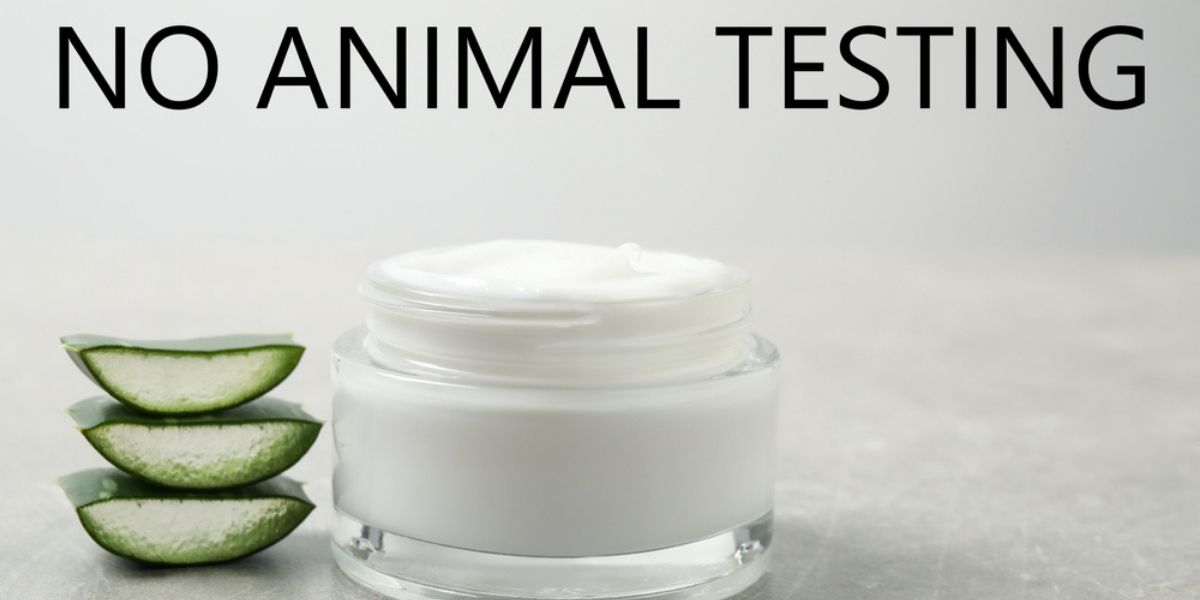
Is A Vegan Lifestyle Really Guaranteed to Help the Environment?
Veganism is an ethical lifestyle rooted in compassion and a desire to change the world. But honestly, is a vegan lifestyle better for the environment? While meat production and single-use plastics are significant causes of pollution, vegan and "eco-friendly" alternatives can also negatively impact the planet. Unsustainable palm oil, water-guzzling plant-milk crops and emissions from trucks importing all those avocados are just some examples.
What Does it Mean to Live a Vegan Lifestyle?
Aside from the dietary factor, you can "go vegan" in virtually every aspect of your life. This is because veganism goes hand-in-hand with other ethical stances.
Depending on your level of vegan-ness, you may choose to…
- Avoid wearing or using animal products like leather, skins, fur and silk
- Only use cruelty-free products on your body and around your home
- Only use sustainable, recycled, biodegradable products with a low carbon footprint
- Reduce, reuse and recycle until you're blue in the face (or green, perhaps)
- Only buy from companies that adopt ethical, eco-friendly working practices
Before committing to a vegan lifestyle, you'll need to find the products and brands that align with your values. Bear in mind that ethical, vegan options can be more expensive and harder to find than their "normal" counterparts. This isn't always the case though; not to brag, but *cough* we're blazing a trail for affordable, vegan, eco-friendly beauty products.
How Does a Vegan Lifestyle Help the Planet?
Science maintains that industrial-scale farming is killing the planet. And everyone knows the devastating impact of single-use plastics and thoughtlessly discarded rubbish. With that in mind, it seems evident that a vegan lifestyle is better for the environment. Here's why:
- It reduces demand for meat production. This reduces greenhouse gases that contribute to climate change.
- Choosing plant-based meat saves water. Production of meat alternatives uses 72-99% less water than animal meat.
- It's a sustainable food system. Almost half the world's grains produced are used to feed livestock, yet millions of people are going hungry.
- Recycling is a big part of a vegan lifestyle. Recycling helps to decrease pollution levels in the air, rivers and oceans.
- Buying recycled items is essential too. Doing so supports companies committed to sustainability, thereby creating more demand for recycling. That's a cycle in itself!
- Buying bamboo products is arguably even better. Bamboo is a natural, sustainable, renewable resource that absorbs 5 times more carbon dioxide than other plants. It can be turned into everything from clothing to cutlery and toilet paper to toothbrushes.
- Avoiding leather is multi-beneficial. It saves animals from suffering, reduces the impact of the meat industry and reduces the levels of toxic chemicals in our water supplies.
- Going cruelty-free also helps the environment. Not only is animal testing cruel, but it also generates vast amounts of toxic waste, from chemicals to animal carcasses and excrement.
How a Vegan Lifestyle Could be Bad for the Planet
As with all things in life, vegan living comes with pros and cons; make one choice, and it has a ripple effect on other aspects. Here's some food for thought:
- Vegan, eco-friendly, cruelty-free products can't always be bought at your local shop. You may have to buy from different online stores, which means a lot of waste packaging and emissions from delivery vans.
- You may refuse to wear leather, but what's the alternative? The most readily-available substitute is plastic, which causes untold environmental problems. However, there are a growing number of companies producing clothing, shoes and bags from sustainable, eco-friendly vegan leather.
- Found the perfect vegan, cruelty-free shampoo? It could be made by a company that also sells non-vegan products, so you refuse to make a purchase. But with no support for their ethical ventures, the company may revert back to being 100% unethical.
- This goes for fast food restaurants too. Many big chains now offer vegan options, but if you avoid them on principle, the restaurants will see a vegan menu as non-viable. That's counterproductive for vegan activism!
Conclusion: Is Veganism Better for the Environment?
The answer is complicated. Vegan living can have both positive and negative effects on the planet. It's about weighing up the pros and cons; of course, less plastic in the ocean is a good thing, but is the alternative better? It's down to us all as individuals to decide where our morals lie and just live kindly, no matter how "vegan" our lifestyles.
Please leave your comments below, we'd love to hear from you :)

I object to the way everyone is getting on the vegan bandwagon, often with very little understanding or experience of farming life.
We farm and are proud to produce animals for food, which is not a bad or evil thing if it is done like we do it. We are not organic
but very close to being so. We use grass to fatten most of our beef and lamb, only using concentrate for the last few months.
We are not intensive; so much of the rubbish we hear from those promoting veganism is based on mis-information, that all
the meat we produce is farmed intensively. Of course there are bad farmers, just like there are bad everything else but the majority, and all the farmers we know really care for their animals. Please encourage people to find out more about organic farming and balanced, small farms,
where mixed farming actually helps wildlife etc. etc. etc.!
Bonjour Marilyn, thank you for your comments.
I want to say that you are right; often people jump on the bandwagon for many subjects without any understanding at all. It's for that reason we offer these articles.
We are certainly not trying to push anyone into a vegan lifestyle. We asked Nicola (who is vegan) to write these articles. She is offering her insight into what to expect for those who are considering veganism. Everyone is free to make up their mind on how they want to live.
I assure you this article is in no way a personal sleight on farming or farmers :)
A sensible heads up on what lies ahead of major changes to a diet pattern. A suggestion is to ease in gently- from two vegetarian meal days in the week up to full time. Then the same into a vegan diet. It is surprising how a body can adapt and enjoy.
Excellent suggestion, Trevor. Humans are very adaptable, but we should always proceed with caution with any major changes to our diet.
Thank you for taking the time to comment :)